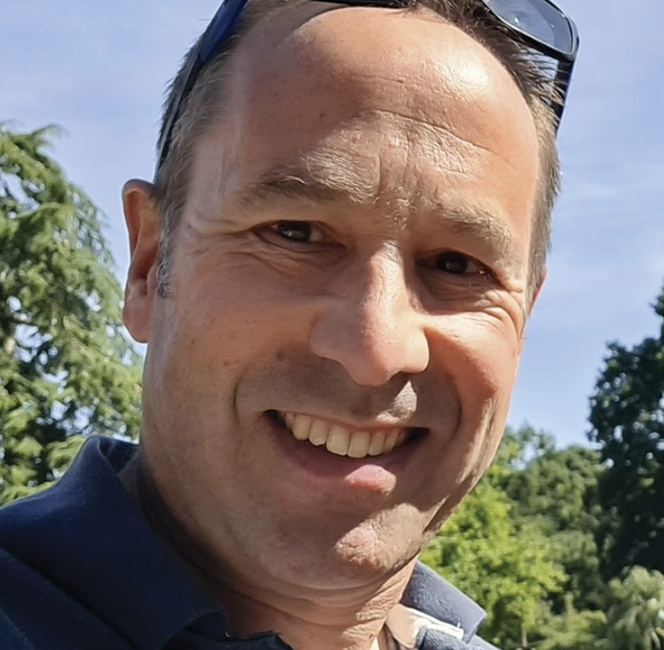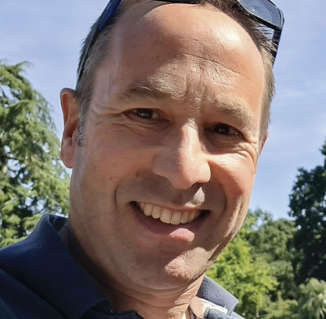After more than two decades at the Bar, from junior clerk to practice manager at 3 Verulam Buildings, Jeremy Hopkins’ adoption of Twitter led to media recognition and sparked an unexpected job opportunity that changed the course of his career
Jeremy Hopkins is someone who has seen the rise of social media from more perspectives than most. After more than two decades at the Bar, from junior clerk at XXIV Old Buildings in 1989 to practice manager at 3 Verulam Buildings, his adoption of Twitter in 2009 was the catalyst for what he describes as a ‘life-changing’ moment.
‘Back in the day, there was a really powerful legal community on Twitter – this created a network, which for me was career-changing; frankly, life-changing, because of the opportunities that came out of it,’ Hopkins recalls.
In early 2012, ‘new law’ business Riverview Law had begun attracting headlines, in part due to controversy over the stakes held in it by a select group of DLA Piper partners, but also its unconventional model, which saw it offer fixed-price legal services and direct access to barristers. This stirred interest from the fast-growing legal community on Twitter, including Hopkins.
His tweets on Riverview prompted The Lawyer to ask him to contribute a blog on the subject, and in turn, that piece attracted the attention of Riverview management, who subsequently offered him a role as head of operations, which he accepted.
‘Twitter got me talking, talking got me blogging, and blogging got me on the radar of legal publications. If that hadn’t happened, I’d still be a barristers’ clerk and have missed out on the amazing career journey I’ve had since. Social media made a massive difference for me – it turned out to be literally life-changing.’
Hopkins left Riverview in 2015 before its acquisition by EY Law in 2018, and subsequently built up one of the most varied CVs in law, with roles including senior project manager at Baker McKenzie, client relationship manager at flexible working provider Obelisk, head of client services at Reading firm Field Seymour Parkes, and now ContentSquare, where he is legal operations director.
Twitter also provided further opportunities for Hopkins, including connecting with Paul Gilbert – the former chair of the Law Society’s commerce and industry group and head of legal at building society Cheltenham & Gloucester – who had set up his own consultancy for in-house lawyers, LBC Wise Counsel.
‘Paul was part of that early Twitter community, and we ended up becoming very good friends, which led to my involvement as an observer, participant, sponsor (through Riverview) and facilitator. Involvement in his events have made a profound difference on me personally and professionally, because it’s a unique community of some of the most talented and generous leaders in the legal industry and beyond.’
While Hopkins is a die-hard advocate for the site now formerly known as Twitter, he acknowledges that since Elon Musk’s takeover and the ‘X’ rebrand, the site has passed its peak, with the formerly tightly-knit legal community now more disparate.
‘The Muskification of Twitter has fragmented the community, and I’m not quite sure where it’s going to end up, whether that’s Threads or Bluesky or LinkedIn. Musk aside, it was perhaps always inevitable that growth would lead to dilution of the special community feel.
‘Linkedin seems to have benefited, because there is more engagement there, and it seems to have become a little more human and genuine, although the professional vs personal themes do not always sit well together. The downside remains that there is just too much content to navigate time-efficiently. It’s a shame they don’t change the interface to enable more selective and “bite-size” consumption along the lines of Twitter.’
After two years in his current role at ContentSquare, Hopkins also notes how his perspective has shifted.
‘Up until now I have always been a provider of legal or consultancy services and had something to sell. In that context, any time spent on social media could be justified to myself as promotion and so part of the day job. However, value for me these days comes more from learning and collaborative problem-solving, so I have to be more selective about the purpose of my time invested on social media, although the ‘social’ element remains essential.’
Return to our social media influencers feature ‘Social circles’.














